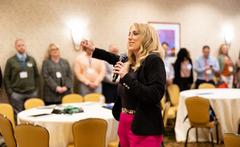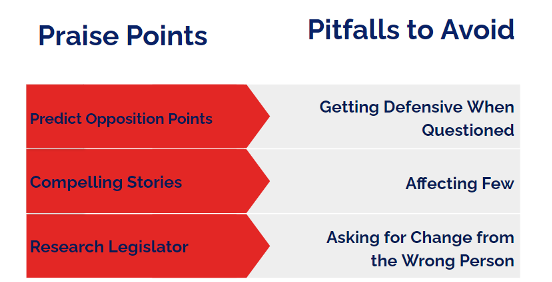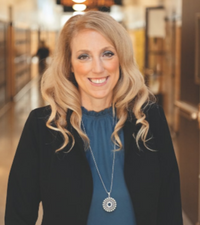We Are All Advocates
“Our lives begin to end the day we become silent about things that matter.”
—Dr. Martin Luther King, Jr.

I was honored to spend some time at the 2023 National School Leaders Advocacy Conference in Washington, D.C., last month. The event was a joint effort of NASSP and NAESP, where 400 school leaders from across the country came together to discuss key K–12 education issues and meet with lawmakers on Capitol Hill to advocate for federal support to address our concerns. I also had the privilege to present at the conference alongside Heather Wolfe, the 2022 NAESP National Distinguished Principal from Tennessee.
Being surrounded by passionate educational leaders re-energized me during an especially trying season in education. We took time to celebrate the great things happening in schools. We also brainstormed solutions for two of the most significant issues our schools face nationwide: educator retention and the mental health, safety, and wellness of our students and staff.
Our work at the conference is an example of amplifying the voices of school leaders at the national level, but advocacy can start with a single interaction—even within your own community. Remembering that we advocate every time we talk about our profession is essential. Each interaction with a district official, community leader, legislator, parent, and student can have a lasting effect. For positive change to occur in our schools, it will take all of our voices working together.
Strong advocates take time to organize. One strategy I have used with staff and that Heather and I presented at the conference is creating an elevator speech. When my colleagues and I at Fulton Middle School have a topic that requires a shared message, we come together to identify key points. For example, when we moved to a new grading system, we crafted our elevator speech together to ensure a unified message with specific details. Affectionately, we called it our “Walmart Speech” since Walmart is the hub of our small town.
As you consider crafting your own “Walmart Speech” to advocate for the needs of your students and school, here’s a tool to organize your thoughts and consider how to make your advocacy pitch concise and effective:
Four issues to address:
- The What: The Issue at Hand
- The Why: What Makes it Important
- The How: Proposed Solution
- The Feeling: Body Language, Triggers, etc.
Click HERE for an editable copy of the organizer.
The What: The Issue at Hand
It is critically important that you are clear and concise on the issues at hand. It is essential to share no more than three key details for each issue. It’s also an opportunity to personalize your message with a story or specific situation.
The Why: What Makes It Important
The why of the work leads back to improving the greater good for whom you are advocating. Your position is not a personal ask but something that affects many people. Here is where you bring in the research and facts about the topic.
The How: Proposed Solution
What is the solution to the issue? How does the person you are talking to fit into this solution? A visual or written plan may also be helpful. But, again, it’s important to stay authentic.
The Feeling: Body Language, Triggers, etc.
The delivery matters as much, if not more, than your actual message. For example, your body language, tone, and facial expressions can draw in or push away those you speak to. Also, it is imperative to identify your potential triggers (e.g., body language from the speaker) that could distract you during the conversation.
Praise Points and Pitfalls to Avoid
There are praise points to make your advocacy more effective and pitfalls to avoid. These tie back to ensuring that your message is not only spoken but heard.

Advocacy work can seem daunting at first. My biggest tip is just to get started. Never underestimate the impact that one voice can make.
Advocate for your school by asking your representatives to strengthen the educator pipeline here.

